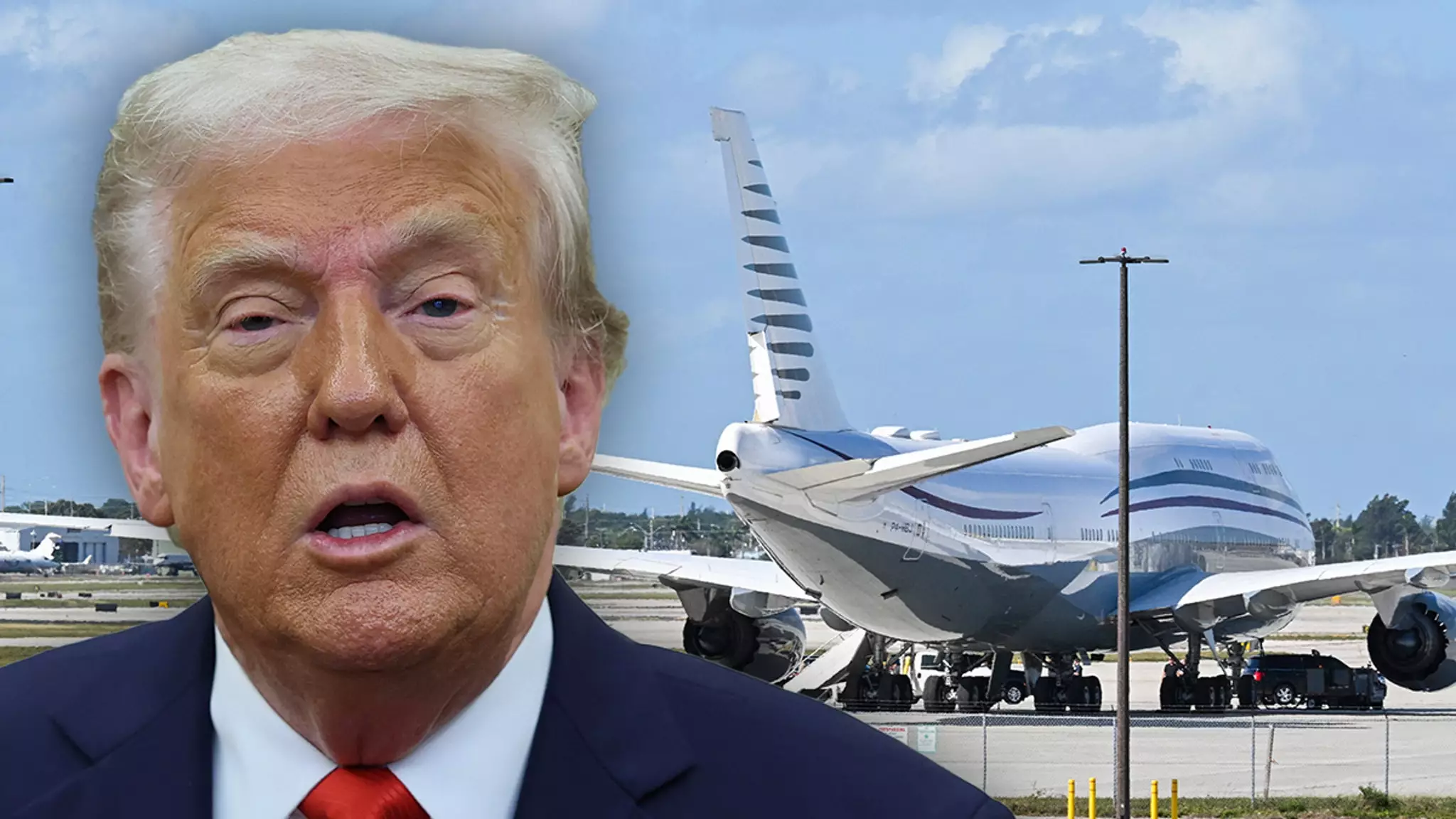Donald Trump’s recent social media posts touting a luxurious Boeing 747-8, dubbed the “flying palace,” raise eyebrows not only for their extravagant nature but also for the unsettled legal waters they navigate. Gifted by the royal family of Qatar, this aircraft symbolizes opulence, but the implications behind accepting such a lavish present from a foreign government are fraught with constitutional and ethical dilemmas. This situation underscores a broader issue in American politics—the intersection of wealth, power, and privilege.
The Double-Edged Sword of Political Gifts
When Trump refers to the jet as a “gift” meant to replace the aging Air Force One, he hits a nerve. The 1978 Ethics in Government Act prohibits federal officials from accepting gifts from foreign entities amounting to more than nominal values, a rule that speaks to fears of foreign influence undermining U.S. governance. Yet, the Trump administration argues that because the aircraft will be transferred to the U.S. Defense Department before becoming a part of Trump’s personal legacy foundation, it circumvents these legal constraints. This rationale feels disingenuous and raises questions about the lengths political figures will go to protect their interests while skirting legalities.
The Specter of Influence and Misuse of Power
The common perception is that politics should be a clean and noble approach to governing a nation, but Trump’s potential acceptance of this plane serves as a reminder of the often murky waters of political gifts and the influence they can wield. Critics suggest that such actions could set a dangerous precedent for future administrations, possibly opening the floodgates to further foreign influence. The notion of a lavish aircraft managed by the Defense Department might seem practical on the surface, but it risks fostering an environment where financial gifts could translate into undue influence and power dynamics that heavily favor wealth over democratic principles.
A Cloud of Skepticism Amidst the Glitz
Trump’s response to critics, labeling them as “World Class Losers,” reveals not just his trademark brashness but also a troubling dismissal of constitutional governance. The reality is that when one is cloistered in luxury, the perspective on laws and ethical standards can become skewed. His focus on the operational benefits of an extravagant jet reflects a deeper tension within the fabric of American society, where the affluent can leverage their resources to manipulate political narratives to their advantage. The optics of high-cost gifts and the potential for quid pro quo implications create a cloud of skepticism that can overshadow any goodwill intentions.
The Broader Implications for American Governance
As speculation swirls about the future of this “flying palace,” it is crucial to contextualize this scenario within the much larger scope of American governance. The questioning of where political power ends and financial influence begins is more than just an exercise in legal interpretation; it is a fundamental examination of the health of democracy itself. Discussions around such high-value gifts inevitably lead to deeper reflections on accountability, the integrity of politics, and the significance of trust in leadership. As the political landscape continues to evolve, this incident may serve as a critical touchpoint in debates surrounding the ethics of political gifts and foreign influence.

